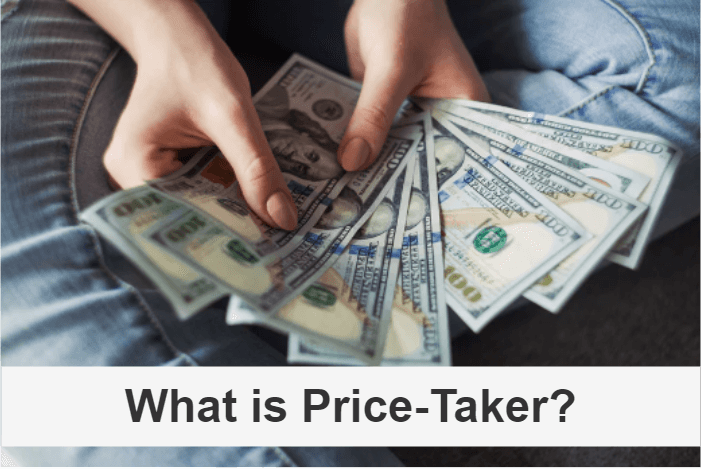Price-Taker: Definition, Perfect Competition, and ExamplesWhat is Price Taker?An individual or business that must accept market pricing because it lacks the share of the market to make an impact on its own is known as a price-taker. In a market with perfect competition, or one in which all businesses offer the same good, there are no obstacles to entry or departure. Each business has a small share of the market, and all consumers are fully informed about the market. In such scenarios, all economic participants are regarded as price takers. This is valid for both sellers and purchasers in the debt and stock markets and consumers and producers of commodities and services.  Individual investors are referred to as price-takers in the stock market, whereas market-makers determine the bid and offer prices for an asset. However, being a market maker does not give them the authority to establish whatever price they like. The economic rules of markets, such as supply and demand, place restrictions on market makers and put them in competitive rivalry. Understanding Price-TakersFirms are price takers in the majority of competitive marketplaces. To the extent that all of these companies provide similar (substitutable) goods or services, consumers will generally prefer to buy from a different low-cost seller if others charge higher rates than the market rate for their items. An excellent example of a good with almost comparable quality across its numerous suppliers is the wheat market. As a result, the price of grain is influenced by competition in domestic, international, and commodities exchanges. In wheat, low-cost providers will have the edge over high-cost ones since they may push them out of business and steal their market share by providing continuously decreasing pricing. The technological advancement that reduces manufacturing costs results from the competitive process, which forces capitalist enterprises to act as price takers. The oil market is a little bit different. Although oil production is competitively priced as a standardized commodity worldwide, selling oil is extremely difficult due to the high capital expenditures, specialized knowledge required to drill or refine oil, and the high bid price of oil fields. The majority of petrol and other petroleum products' customers are referred to as price takers since there aren't many producers to select from outside a small number of multinational corporations. This is because there are fewer oil-producing enterprises than there are wheat farmers. Through supply restrictions, the Organization of Petroleum Exporting Countries (OPEC) also significantly influences price movements. This emphasizes how price-taking occurs when consumers cannot or do not want to generate the commodity themselves. However, because of the fierce rivalry and technical advancement among these businesses, consumers continue to receive oil at inexpensive costs. Whether businesses and individuals are price takers is heavily influenced by the nature of an organization or market. For instance, most shoppers in retail markets do shop around. For instance, you must rely on the price tag of a product when you enter a grocery shop or apparel store to select whether to buy or not. You cannot go to your local store and make a competitive bid for a box of cereal or a dozen eggs; you must accept the price that is being given. Customers may place bids on online auction sites like eBay, for instance. Thus, the sellers are now setting the price, becoming the price-takers. Special Considerations: Types of MarketsIt is not easy to find a perfectly competitive market these days. In most marketplaces, each company or person has a different capacity to affect pricing through sales or purchases. Monopolies and monopsonies are the complete antitheses of properly competitive marketplaces. A market with a monopoly is one in which one or more sellers have a disproportionate amount of the market's supply, allowing them the authority to raise prices independently. OPEC holds some monopoly. A monopsony is a market where one or more buyers control a sizable enough portion of demand to lower prices. Key Takeaways
Next TopicWhat Is a Liquid Asset |
 For Videos Join Our Youtube Channel: Join Now
For Videos Join Our Youtube Channel: Join Now
Feedback
- Send your Feedback to [email protected]
Help Others, Please Share










